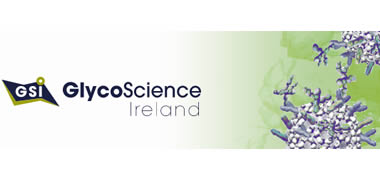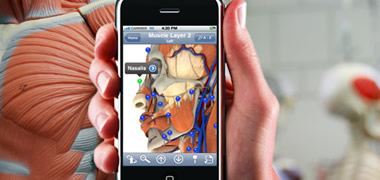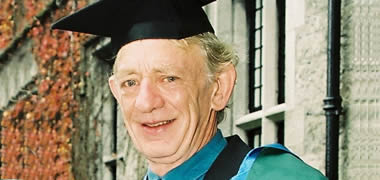-
Courses

Courses
Choosing a course is one of the most important decisions you'll ever make! View our courses and see what our students and lecturers have to say about the courses you are interested in at the links below.
-
University Life

University Life
Each year more than 4,000 choose University of Galway as their University of choice. Find out what life at University of Galway is all about here.
-
About University of Galway

About University of Galway
Since 1845, University of Galway has been sharing the highest quality teaching and research with Ireland and the world. Find out what makes our University so special – from our distinguished history to the latest news and campus developments.
-
Colleges & Schools

Colleges & Schools
University of Galway has earned international recognition as a research-led university with a commitment to top quality teaching across a range of key areas of expertise.
-
Research & Innovation

Research & Innovation
University of Galway’s vibrant research community take on some of the most pressing challenges of our times.
-
Business & Industry

Guiding Breakthrough Research at University of Galway
We explore and facilitate commercial opportunities for the research community at University of Galway, as well as facilitating industry partnership.
-
Alumni & Friends

Alumni & Friends
There are 128,000 University of Galway alumni worldwide. Stay connected to your alumni community! Join our social networks and update your details online.
-
Community Engagement

Community Engagement
At University of Galway, we believe that the best learning takes place when you apply what you learn in a real world context. That's why many of our courses include work placements or community projects.
2010
All Year 2010
Course on Cinema, Human Rights and Advocacy Offered at NUI Galway

Friday, 3 September 2010
The first annual School in Cinema, Human Rights and Advocacy is being held this week at NUI Galway, under the auspices of the Huston School of Film and Digital Media and the Irish Centre for Human Rights. Human rights activists, film-makers and interested students from Ireland and various parts of the world attended the course, which consisted of a varied programme of workshops, seminars and film screenings with established film-makers and academics. "Our aim is to widen the horizons of professionals in the film, documentary, Non-Governmental Organisation (NGO) and media sector, reflecting on the use of film and video advocacy as an instrument for enhancing human rights awareness on critical social, political and environmental issues, and to influence change", explained Professor William Schabas, Director of the Irish Centre for Human Rights at NUI Galway. The programme is directed by Nick Danziger, a leading practitioner in the field of human rights documentary making, and Claudia Modonesi, an expert in the organisation and management of cultural events related to human rights. "A wide ranging group of experts in the field have gathered at NUI Galway to discuss bringing other voices into the media. At a point where there are significant current crises in the world financial and ecological systems that could not be more urgent work", said Rod Stoneman, Director of the Huston School of Film and Digital Media. This team of facilitators also collaborated in the successful Summer School in Cinema and Human Rights that ran from 2005 to 2008 in Venice at the European Inter-University Centre for Human Rights and Democratisation. The summer course has been made possible thanks to financial support from the Galway University Foundation. -Ends-
>> Read full story about Course on Cinema, Human Rights and Advocacy Offered at NUI Galway
Third Annual Meeting of GlycoScience Ireland

Wednesday, 1 September 2010
The third annual meeting of GlycoScience Ireland, organised and sponsored by the Alimentary Glycoscience Research Cluster (AGRC) of NUI Galway and the National Institute for Bioprocessing Research and Training (NIBRT), is being held this week in Dublin. GlycoScience Ireland is an academic organization which aims to build support and promote Glycosciences research in Ireland and to provide visibility and collaborative opportunities for Irish glycoscientists with international academic and industrial communities. Building upon the success of the last two meetings, this year will continue to look at trends in Glycosciences taking a broader international view that will highlight Irish science internationally and facilitate Irish based scientists in networking with many global leaders in this field. Professor Lokesh Joshi, Stokes Professor of Glycosciences and Director of the AGRC at NUI Galway, said: "The importance of glycoscience in biomedical and clinical research is being widely acknowledged. Glycoscience Ireland is bringing Irish and International researchers from academic, clinical and industrial sectors together to collaborate and focus on translational projects. Glycoscience Ireland and the community of glycoscience researchers in Ireland are working together to promote Ireland as a hub of glycoscience and related research". Attendees include representatives from the major Irish funding agencies, Irish academic institutions, Irish and multinational Biopharmaceutical and Biotechnology industries, and a distinguished panel of speakers from the US and Europe. This year s conference will include poster prizes donated by BioImages Ltd. -Ends-
>> Read full story about Third Annual Meeting of GlycoScience Ireland
Pocket Anatomy Launches Full Body App on the App Store

Wednesday, 1 September 2010
Pocket Anatomy, a Galway-Mayo Institute of Technology campus-based company, has launched Pocket Body - the latest application (app) for medical students and other health care professionals on Apple's App Store. This medical software, featuring comprehensive human musculoskeletal anatomy content by means of a multi-layered sequence of high-definition photo-realistic illustrations of the human body, is a breakthrough in human anatomy education. Pocket Body was developed in conjunction with the College of Medicine and Health Sciences at NUI Galway. Pocket Body features a fully anatomically accurate human character with nine layers of musculoskeletal content, enabling the user to navigate from the skin layer through the superficial to deep musculature, and on through to ligaments and the skeleton. In each layer, structures are pinned for identification and associated with each pin is additional concise relevant information including clinical notes. All of the information is presented in an interactive, mobile and accessible format which takes full use of the features of the device on which the app runs (iPhone, iPad or iTouch). This is a marked contrast with the two-dimensional (2D) printed pictures and diagrams commonly used in the teaching of advanced human anatomy today. Additional features allow the user to make learning notes as they progress through the learning content, and also utilize the built-in quizzes as a self-test capability to assist in their learning and exam preparation. Pocket Body will assist medical and other health care students gain a deep understanding of human musculoskeletal anatomy and assist in examination preparation. By making comprehensive human musculoskeletal anatomy content available on demand it will also act as a continuing anatomy resource throughout their degree programme, and as a reference on into the professional workplace. Dr Brendan Wilkins, an anatomy lecturer based in the NUI Galway's College of Medicine and Health Sciences worked on the development of Pocket Body with a team of third and fourth year medical students and together they specified and wrote all of the content within the app. Combined with the software design expertise of Pocket Anatomy, the result is an innovative and exciting app which will serve as a supplement to the lectures, classes and complementary texts used by the medical and health care student and provide a detailed source of human anatomical content, on demand, through the student's own portable device. Mark Campbell, CEO of eMedia and creators of Pocket Anatomy says: "We are excited with the launch of Pocket Body, which has been co-developed by medical students for medical students. This new software enables medical students to visualise complex anatomical structures in a novel format, thereby assisting students to gain a deep understanding of the human musculoskeletal system through the use of interactive high definition photo-realistic illustrations of the human body.As medical students and educators continue to embrace new technologies in their teaching and learning practices, Pocket Anatomy will continue to push the boundaries in the use of new technologies for the purposes of medical education". "This project demonstrates how SME s can leverage local academic expertise within Universities and IoT s to accelerate the product development cycle" said Mark Campbell. Pocket Body is now available for the iPad, iPhone and iTouch. To purchase and download Pocket Body please visit: http://www.PocketAnatomy.com/iTunes.php. -Ends-
>> Read full story about Pocket Anatomy Launches Full Body App on the App Store
Over 1650 College Places Offered to Disadvantaged

Tuesday, 31 August 2010
Educationally disadvantaged studentsf chances of going to college have just been given a boost with the offer of over 1650 college places through the DARE and HEAR initiatives. This is a 61% increase on the number of offers made in 2009. The Disability Access Route to Education (DARE) and the Higher Education Access Route (HEAR) give a points reduction to disadvantaged students and students with disabilities thus increasing their chances of success in getting to Third Level. In the run up to the Leaving Cert 2010 the schemes were integrated into the CAO application system and opened up to secondary school students nationwide, with a record number of applications being received. The accesscollege.ie website was also launched as part of a targeted marketing campaign. Development of the schemes was supported by the Department of Educationfs Strategic Innovation Fund. These latest developments underscore the continuing commitment of the Irish Higher Education sector to tackling social exclusion. In June 2008 the HEA National Access Office launched the National Action Plan for Equity of Access to Higher Education 2008]2013, setting out ambitious targets and equity of access measures for the next 5 years. Those targets include an entry rate of at least 54% for all socio-economic groups by 2020 and a doubling of the number of students in 3rd level with sensory, physical and multiple disabilities by 2013. According to Ann OfBrien, Chairperson of the DARE and HEAR Schemes, gthe significant increase in the number of offers made this year is a welcome sign that these schemes are on track to meet national targets. It also offers encouragement to students from these groups to begin considering higher education as a real option in the future." Access schemes are effective in overcoming the effects of disadvantage as shown by the recently published Trinity Access Programme (TAP) report which shows that the quality of degrees attained by access graduates mirrors those attained by other graduates. However, continuing efforts are needed in this area as shown in recent Geary Institute research which demonstrated that students from socioeconomically disadvantaged backgrounds have lower earnings expectations. gThe current economic climate reinforces the importance of tackling exclusion, said IUA Access Manager Maureen Dunne, as disadvantaged groups are even less likely to get jobs in a tight labour market, and this problem is magnified greatly for people with lower educational attainment. The HEAR and DARE initiatives help overcome this problem by boosting access to college and helping disadvantaged students fulfil their true potentialh. -Ends-
>> Read full story about Over 1650 College Places Offered to Disadvantaged
NUI Galway President Pays Tribute to Actor Mick Lally

Tuesday, 31 August 2010
NUI Galway President, Dr James J. Browne, has paid tribute to the late Mick Lally, former actor and graduate of the University. A native of Tourmakeady, Co Mayo, Mick Lally, graduated from the University with a BA 1969, HDip in Ed 1970, and an Honorary MA in 1999 for his contribution to Irish theatre, at home and abroad. Dr James J. Browne, NUI Galway President, said: "The University offers its sincere condolences to Mick's family, many friends, and colleagues. Mick Lally was an outstanding actor of his generation, perhaps of any generation. We truly valued him as a graduate. His national and international reputation earned him the status as an icon of Irish theatre. An Irish speaker who served his native Mayo and country with complete commitment, it is our pleasure to have him associated with this University, Mick will be remembered fondly". In 1975 following from a successful summer of drama productions, three budding actors from the then UCG Dramasoc Garry Hynes, Marie Mullen and Mick Lally founded Druid Theatre Company. Druid went on to become an award-winning theatre company of international renown. Mick Lally was conferred with an Honorary Master of Arts, honoris causa, Degree on 27 October, 1999. -Ends-
>> Read full story about NUI Galway President Pays Tribute to Actor Mick Lally















